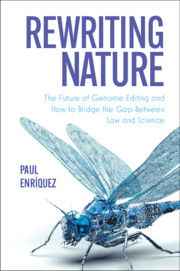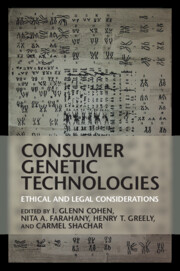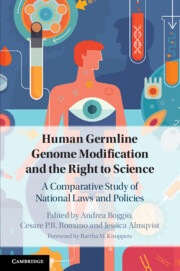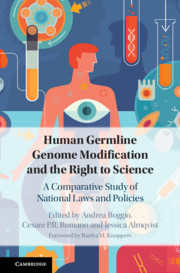Rewriting Nature
History will mark the twenty-first century as the dawn of the age of precise genetic manipulation. Breakthroughs in genome editing are poised to enable humankind to fundamentally transform life on Earth. Those familiar with genome editing understand its potential to revolutionize civilization in ways that surpass the impact of the discovery of electricity and the development of gunpowder, the atomic bomb, or the Internet. Significant questions regarding how society should promote or hinder genome editing loom large in the horizon. And it is up to humans to decide the fate of this powerful technology. Rewriting Nature is a compelling, thought-provoking interdisciplinary exploration of the law, science, and policy of genome editing. The book guides readers through complex legal, scientific, ethical, political, economic, and social issues concerning this emerging technology, and challenges the conventional false dichotomy often associated with science and law, which contributes to a growing divide between both fields.
- Proposes a normative, empirical-based, flexible legal framework to address questions of science and law
- Provides a clear foundation of the science and building blocks of genome editing to render complex scientific principles accessible to audiences without a scientific background
- Features accessible, clear, and stimulating narratives to help convey the significance of emerging genome-editing technologies
Product details
June 2021Paperback
9781108468794
350 pages
228 × 151 × 25 mm
0.64kg
Available
Table of Contents
- 1. A Momentous Time for Humankind
- 2. How an Idea Became a Reality
- 3. What is Genome Editing?
- 4. Molecular Paraphernalia
- 5. What Can Genome Editing Be Used For?
- 6. Redesigning Food
- 7. Regulating Bioengineered Food
- 8. Redesigning Humanity
- 9. DNA and the Administrative State
- 10. Constitutional Predicaments
- 11. Science, Law, and Policy
- 12. Epilogue.






